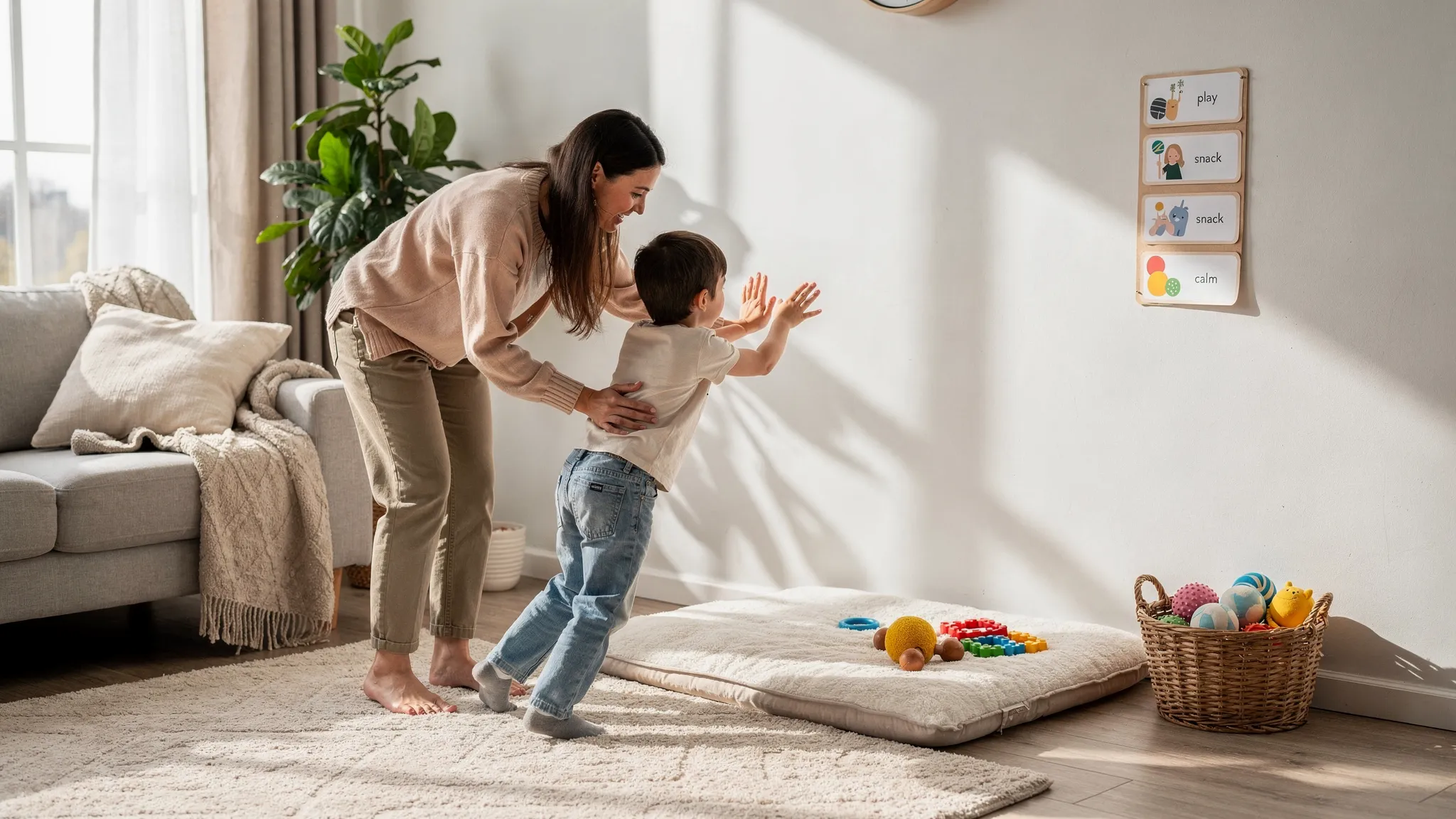- About Us
- Our Services
- Speech Therapy
- Speech and Language Therapies for Adults in Dubai
- Speech and Language Therapies for Children in Dubai
- Accent therapy
- Augmentative Alternative Communication (AAC) Therapy
- Articulation Speech Therapy
- Auditory Processing therapy/ Auditory verbal therapy
- Language Intervention: Speech Delay therapy
- Oral Motor Therapy
- Play Based therapy
- PROMPT/DTTC/RePT for Childhood Apraxia of Speech
- Social communication/Pragmatic language therapy
- Stuttering / Stammering therapy Program
- Spellography Program for Dyslexia
- Voice Therapy
- Home Care Services
- Feeding Therapy
- Physiotherapy
- Pediatric and Geriatric Physiotherapy
- Fall Prevention Programs for the Elderly
- Developmental Delay Treatment for Children
- Cerebral Palsy Management for Children
- Pediatric Orthopedic Conditions
- Osteoporosis Management for the Elderly
- Sports Injuries in Children
- Mobility and Balance Training for Elderly
- Joint Pain Treatment (Knee, Shoulder, Hip)
- Age-Specific Exercise Programs
- Coordination and Balance Exercises
- Orthopedic Physiotherapy
- Neurological Physiotherapy
- Sports Physiotherapy
- Cardiopulmonary Physiotherapy
- Women’s Health Physiotherapy
- Manual Therapy
- Therapeutic Exercise
- Pain Management
- Electrotherapy
- Ergonomic Consultation
- Tele-Physiotherapy Services
- Pediatric and Geriatric Physiotherapy
- Occupational Therapy
- Sensory Integration
- Clinical Psychology & Psychotherapy
- Cognitive Behavioral Therapy(CBT)
- ABA /Behavior Therapy
- Bridge Learning Program
- Group therapy
- Summer/Winter Program
- Telehealth Services
- Training Program/CEU
- Internship/ Observership
- Speech Therapy
- Super Team
- Collaboration
- Training Course
- News/Blogs
- About Us
- Our Services
- Speech Therapy
- Speech and Language Therapies for Adults in Dubai
- Speech and Language Therapies for Children in Dubai
- Accent therapy
- Augmentative Alternative Communication (AAC) Therapy
- Articulation Speech Therapy
- Auditory Processing therapy/ Auditory verbal therapy
- Language Intervention: Speech Delay therapy
- Oral Motor Therapy
- Play Based therapy
- PROMPT/DTTC/RePT for Childhood Apraxia of Speech
- Social communication/Pragmatic language therapy
- Stuttering / Stammering therapy Program
- Spellography Program for Dyslexia
- Voice Therapy
- Home Care Services
- Feeding Therapy
- Physiotherapy
- Pediatric and Geriatric Physiotherapy
- Fall Prevention Programs for the Elderly
- Developmental Delay Treatment for Children
- Cerebral Palsy Management for Children
- Pediatric Orthopedic Conditions
- Osteoporosis Management for the Elderly
- Sports Injuries in Children
- Mobility and Balance Training for Elderly
- Joint Pain Treatment (Knee, Shoulder, Hip)
- Age-Specific Exercise Programs
- Coordination and Balance Exercises
- Orthopedic Physiotherapy
- Neurological Physiotherapy
- Sports Physiotherapy
- Cardiopulmonary Physiotherapy
- Women’s Health Physiotherapy
- Manual Therapy
- Therapeutic Exercise
- Pain Management
- Electrotherapy
- Ergonomic Consultation
- Tele-Physiotherapy Services
- Pediatric and Geriatric Physiotherapy
- Occupational Therapy
- Sensory Integration
- Clinical Psychology & Psychotherapy
- Cognitive Behavioral Therapy(CBT)
- ABA /Behavior Therapy
- Bridge Learning Program
- Group therapy
- Summer/Winter Program
- Telehealth Services
- Training Program/CEU
- Internship/ Observership
- Speech Therapy
- Super Team
- Collaboration
- Training Course
- News/Blogs
Table of Contents
ToggleSensory Integration Therapy In Dubai
- Home
- Our Services
- Sensory Integration
Sensory Integration benefits
Sensory integration refers to the process by which the brain organizes and interprets information from the various senses (sight, sound, touch, taste, and smell). This process is essential for overall development and functioning.Bridges Speech Center offers the best sensory inegration therapy in Dubai Here are the detailed benefits of sensory integration:
Enhanced Perception and Understanding
- Improved Recognition and Differentiation: Sensory integration helps individuals identify and distinguish between different textures, sounds, and visual cues, facilitating better understanding and interaction with their environment.
- Enhanced Environmental Comprehension: By effectively processing sensory information, individuals can navigate and understand their surroundings more easily, improving their ability to respond to environmental changes.
Motor Skills Development
- Coordinated Motor Actions: Proper sensory integration allows for precise and coordinated movements, essential for tasks such as handwriting, tying shoelaces, and riding a bicycle.
- Improved Fine and Gross Motor Skills: Enhances both small (fine) and large (gross) motor skills, which are critical for daily activities and physical development.
Attention and Concentration
- Enhanced Focus: Efficient sensory processing helps individuals filter out irrelevant stimuli and concentrate on important tasks, which is crucial in both academic and everyday settings.
- Improved Academic Performance: By improving attention and concentration, sensory integration supports better learning outcomes and academic success.
Emotional Regulation
- Stress and Anxiety Management: Smooth processing of sensory inputs helps individuals manage their emotional responses, reducing anxiety and stress.
- Calming Effects: Techniques such as deep pressure touch can have a calming effect on the nervous system, aiding in emotional self-regulation.
Social Interaction and Communication
- Enhanced Recognition of Social Cues: Sensory integration improves the ability to read body language, facial expressions, and other social cues, which are vital for effective communication.
- Better Interpersonal Relationships: These skills contribute to more meaningful and successful social interactions, enhancing interpersonal relationships.
Cognitive Development
- Stimulated Brain Development: Processing sensory inputs effectively supports cognitive functions such as memory, problem-solving, and decision-making.
- Improved Synaptic Connections: Exposure to various sensory experiences promotes brain development and the formation of synaptic connections, enhancing cognitive abilities.
Adaptive Behavior
- Improved Adaptability: Strong sensory processing abilities help individuals adjust their behavior based on sensory cues, making it easier to handle transitions and new experiences.
- Ease of Handling Changes: Sensory integration supports flexibility and resilience in adapting to different environments and situations.
Learning Readiness
- Foundation for Effective Learning: Efficient sensory processing prepares children to engage in classroom activities, follow instructions, and absorb new information, laying the groundwork for successful learning experiences.
- Positive Learning Experience: Children with strong sensory integration skills are better equipped to benefit from educational opportunities, enhancing their overall learning readiness.
Self-Awareness and Body Image
- Improved Body Awareness: Sensory integration helps individuals understand their bodies and how they interact with their environment, promoting spatial awareness and coordination.
- Healthy Body Image: A better understanding of body movements and spatial relationships contributes to a positive body image.
Daily Functioning and Independence
- Enhanced Daily Functioning: Effective sensory processing supports the ability to perform everyday tasks, such as dressing, preparing meals, and navigating the environment.
- Greater Independence: Individuals with well-integrated sensory processing are more capable of participating actively in various aspects of life, leading to increased independence and quality of life.
Additional Support and Interventions
It’s important to note that sensory integration varies from person to person, and some individuals may have sensory processing differences or challenges that require specialized support or interventions. Occupational therapists often work with individuals, particularly children, to address sensory integration concerns and help them develop these skills to their fullest potential.
Frequently Asked Questions
What therapy is best for sensory issues?
The most recommended approach for sensory issues is Sensory Integration Therapy, often provided by an occupational therapist. This therapy helps individuals with sensory processing disorder or sensory processing difficulties learn to respond better to everyday sensory experiences. It uses structured activities that engage the senses, improve regulation, and support daily functioning.
What does a sensory therapist do?
A sensory therapist, often an occupational therapist, works with people experiencing sensory processing challenges. They design personalized activities and use tools such as sensory toys and exercises to improve the way the brain processes sensory input. Their goal is to enhance skills like attention, emotional regulation, and social interaction through structured sensory activities.
What is Sensory Integration Therapy?
Sensory Integration Therapy is a structured method that helps people manage and respond to sensory input more effectively. It focuses on improving how the brain processes signals from the vestibular system (balance), tactile system (touch), and proprioceptive system (body awareness). This therapy is especially beneficial for children with sensory processing difficulties, autism spectrum disorders, and attention challenges.
How can sensory processing disorder affect daily life?
Sensory processing disorder can affect a person’s physical development, emotional regulation, and ability to participate in daily activities. For example, a child may struggle with gross motor skills activities like climbing or fine tasks such as writing. Adults may face difficulties with how to control your emotions or maintaining focus in overwhelming environments.
What activities help with sensory processing challenges?
Activities such as gross motor activities, fine motor skills activities, and sensory activities can support sensory development. Using sensory toys for adults or children, balance exercises that stimulate the vestibular system, and structured play can all reduce sensory processing difficulties and improve overall well-being.
Testimonials
What Parents Say
Send us an email if you wish to talk to any of them. For more reviews, please go to Google reviews.

My experience with bridges speech centre has been great. My child is attending OT in the center and we are happy and proud with the progress Mrs. Richa has made. The therapists are very supportive and knowledgable in selecting techniques to suit with our child's requirements . Their monthly review and evaluation is remarkable. I highly recommend bridges speech centre to anyone looking for an affordable and professional therapy for their child....

We were asked to consult a speech therapist for my son. As parents we were quite skeptical about this whole process. However, once my son started attending Dr Rupali’s sessions we noticed a drastic improvement in his speech. He used to speak only a few words but within the 1st four sessions he started speaking up-to 5 words sentences. I also learnt to manage my child’s emotions better with Dr Rupali’s guidance. She is very cooperative and patiently answer all questions.

We took our 21 month old daughter to Bridges speech center following her cleft palate surgery as she needed Speech therapy. Ms.Rupali was recommended to us by both our Pediatrician and ENT specialist. The staff at Bridges are qualified, warm and friendly. My daughter loved to attend the speech therapy sessions. Through various techniques and simulations provided during these sessions, I can see considerable improvement in my daughter's speech. Lastly I would say, no child is same, as parents we need to be patient and trust the process.

Rupali was excellent. In just couple of sessions she helped my child overcome difficulty in pronouncing ch and sh sound. Thanks very much.Highly recommend for children who will need assistance in speech therapy.
Blog & Article
Our Latest Blog & Articles
Sensory Integration Therapy at Home for Children with Sensory Challenges
When a child gets overwhelmed by everyday sounds, refuses certain clothes because they...
The Role of Sensory Integration Therapy in Enhancing Development
The Role of Sensory Integration Therapy in Enhancing Development Sensory Integration Therapy (SIT)...
Sensory Integration
Sensory Integration abdulrehman August 11, 2023 Uncategorized Sensory Integration Sensory integration is a...



